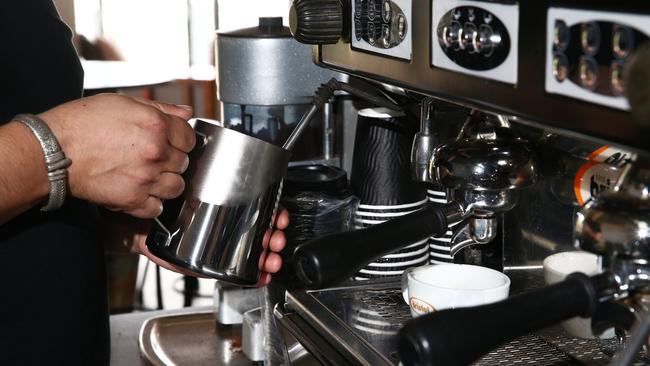Rising casual employment a ‘union myth’, industry group says
Industry says rising workforce casualisation is a ‘union myth’ with the proportion of casual workers currently at a 10-year low.

The proportion of casual workers in Australia has fallen to its lowest level in a decade, dispelling “union myths” that the workforce is being increasingly casualised, a peak industry group says.
A new research paper from AI Group finds that apart from the initial stages of the Covid lockdown in 2020, the proportion of casual workers to the overall workforce is now lower than at any time since 2014.
“In February 2023, there were 2.5 million casual employees in Australia,” the report says. “Casuals account for 22.1 per cent of Australian employees.
“The rate of casual employment in Australia has been stable for some time. In the years before the pandemic, it oscillated between 23.5 per cent and 25.5 per cent. The rate of casual work recently declined to the lowest level in a decade.”
The report, Casual Work in the Contemporary Labour Market, notes that casual employment is skewed to younger workers, with four in 10 aged 15-24 and another 20 per cent aged 25-34.
“This reflects how casual employment often functions as an introduction to the workforce and is more common in industries that employ young labour market entrants (such as retail and food),” it says. “Many casual employees are balancing work with study commitments.”
AI Group chief executive Innes Willox warns any changes to casual employment imposed by the Albanese government as part of its workplace reform agenda will “dramatically restrict” the choice of many young Australians to work how they wish.
“The big risk is that (the government) will lock, stock and barrel adopt a longstanding union agenda fixated on restricting casual employment even though such arrangements suit workers and their employers,” Mr Willox says in an opinion piece for this paper.
“There is simply no justification for further changes to the regulation of casual work. Despite the myths perpetuated by the ACTU, there has been no growth in the rate of casual employment for decades and casual employees working regular hours have never had stronger rights to obtain permanent employment than they do currently.”

“Restricting casual employment would make it harder for people to access a form of work that delivers the financial benefit of a 25 per cent casual loading and the capacity to take on work when it suits them,” Mr Willox says.
But Australian Council of Trade Unions secretary Sally McManus said business lobby groups were looking to keep people working in permanent jobs on casual conditions where they have no guaranteed hours and can be more easily let go.
“Who can really believe big business has the interests of young people and students at heart? Young people have seen the chances of getting a permanent job with permanent rights like the generation before them disappear as jobs have been casualised such as in universities, or sent out to labour hire like in aviation, the public sector and mining,” Ms McManus said.
“These are permanent jobs that are casual in name only and the laws passed by the Morrison Government rubber stamped this practice.

“Australian workers deserve reliable jobs so they have reliable incomes. Casual workers cannot get loans, are disadvantaged when renting and cannot confidently plan for the future. If the laws are not fixed young people will not know what it is like to have a paid sick day or holiday,” she said.
The AI Group report notes that casual jobs, determined according to the Australian Bureau of Statistics definition of “employees who are not entitled to paid leave”, are on average relatively short-lived.
“Nearly half of all casuals have been in their job for less than a year, and another quarter for less than two years. Long-term casual employment is uncommon,” it says.
An ACTU research paper released in May found casual employees earn $11.59 an hour less than permanent workers on average, $28.95 compared to $40.54.
And for workers in the same occupation or at the same skill level, the gap was between $3.55 and $3.84 per hour, about 11 per cent, despite casuals being entitled to 25 per cent leave loading.







To join the conversation, please log in. Don't have an account? Register
Join the conversation, you are commenting as Logout